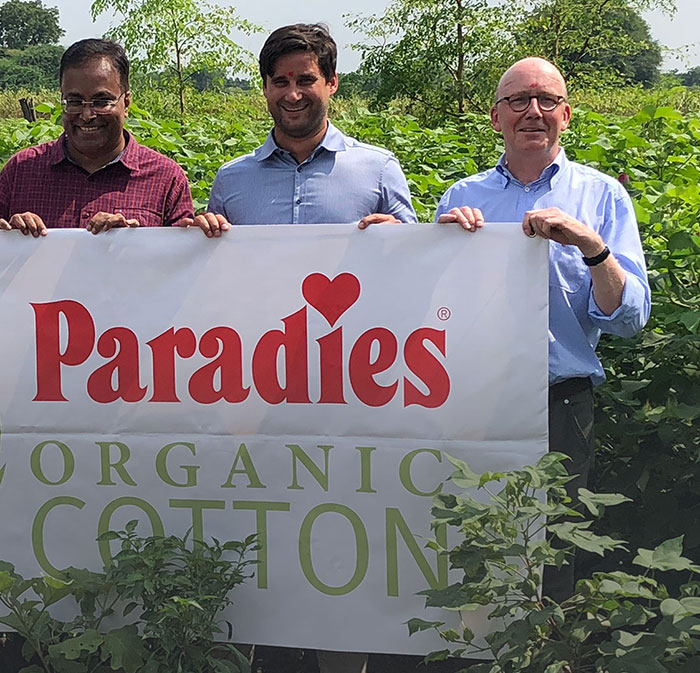
Paradies Organic Cotton Tour
Experiencing and supporting sustainability
For many, sustainability is a fad. We, however, have been committed to CO2-neutral production for years, which lowers the burden on the climate, as well as to the use of renewable and recyclable raw materials. We have also obtained our electricity from renewable energy sources for many years.
Ideally, we would use only organic raw materials that conserve resources as much as possible. At the same time, we of course have to meet our own very high standards. We are constantly working towards combining sustainability and the quality that Paradies is famous for.
Likewise, when it comes to choosing suppliers, we pay attention to both high quality and sustainability. We support them globally in their initiatives for environmentally-friendly production and healthy, socially fair employment conditions.
We regularly inspect the local standards and conditions to ensure they meet requirements. We want our customers to know that Paradies cares. This year, again, we visited our suppliers.

Our Paradies Organic Cotton Tour led us to suppliers from the entire production chain and to locations in Africa and Asia.
We wanted to learn, to expand our horizons and to deepen our partnership-based collaboration.
Read the following stories and join us on our journey into the world of sustainability!
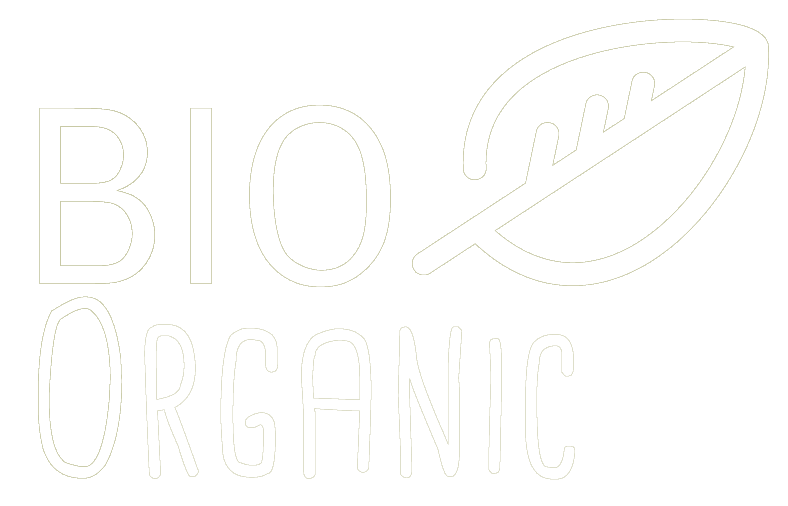
Egypt
Sustainable growth with
organic fertiliser
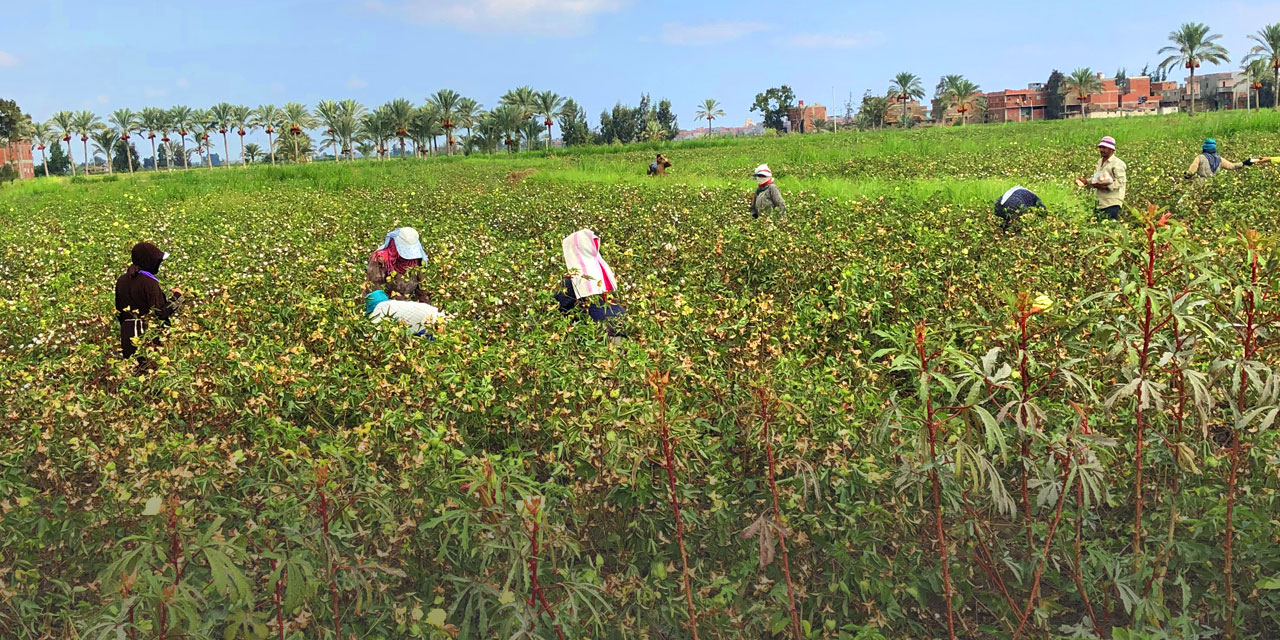
The ban on pesticides in cotton production
was a major success for the initiative of the cotton farmers.
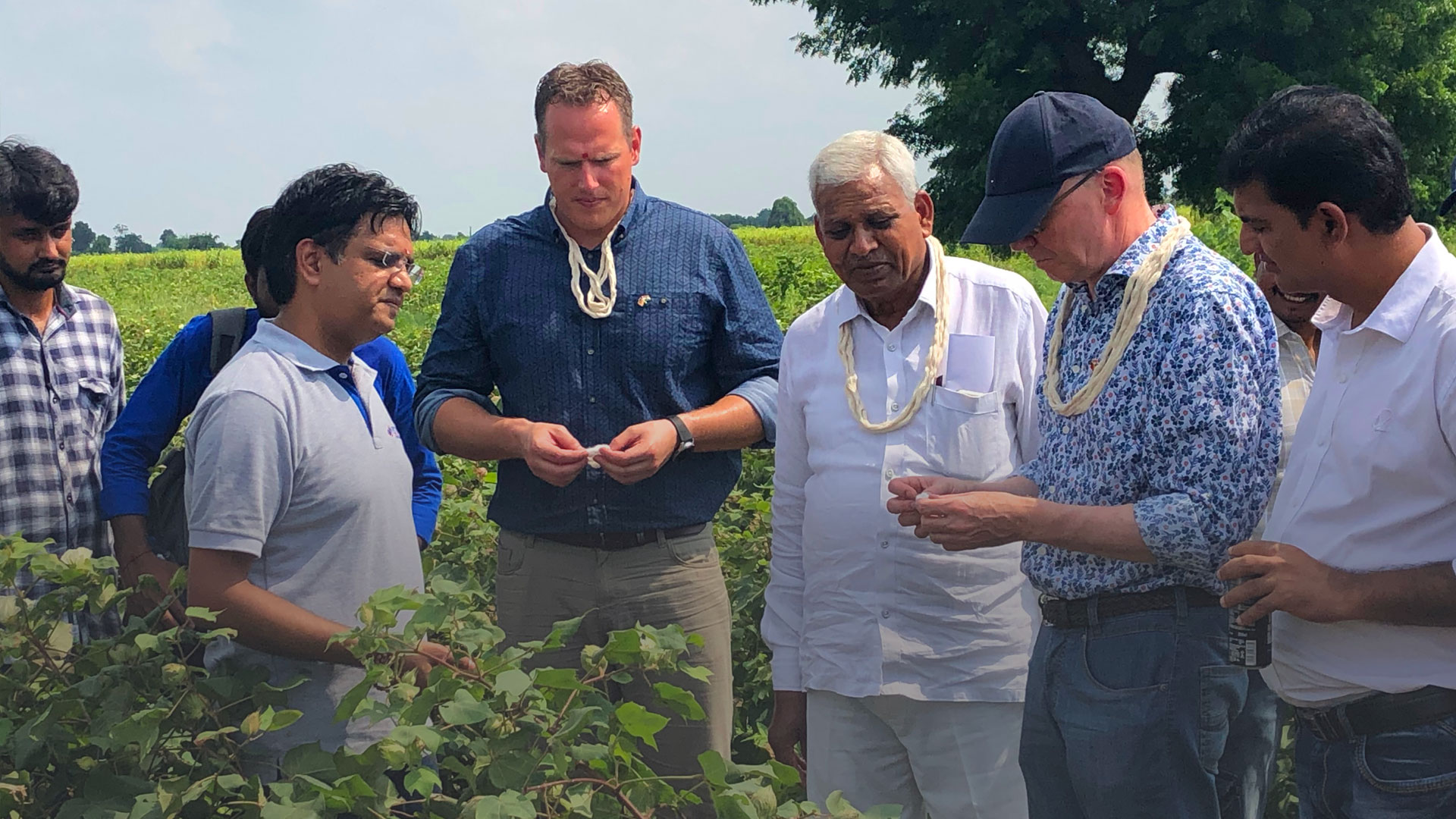
SUSTAINABLE GROWTH
WITH ORGANIC FERTILISER
On our journey we visited two cotton fields in Egypt
About the initiativeSUSTAINABLE GROWTH
WITH ORGANIC FERTILISER
On our journey we visited two cotton fields in Egypt
The first stop on the journey brought us to our suppliers in Egypt. In 1991, an initiative launched by cotton farmers here achieved a major success: “A ban on pesticides in cotton production.”
We had been considering the idea of visiting the cotton farmers in Egypt since the start of the year. As we already use a high proportion of organic cotton fabric in our products, we wanted to experience, feel and better understand what organic cotton really means.
On our trip, we visited two cotton fields in the first harvest period, during which 85–90% of the cotton is picked. The last of the cotton is then harvested two weeks later.
For six years, both fields have been biodynamically farmed and they are monitored twice a year by the Control Union. From sowing seeds through to harvest time, the organic farmers regularly treat the land with organic fertiliser, which consists of a mixture of plants that grow near the fields. As soon as a pest infestation is detected, the pests are driven away by spraying the area with natural means of crop protection.
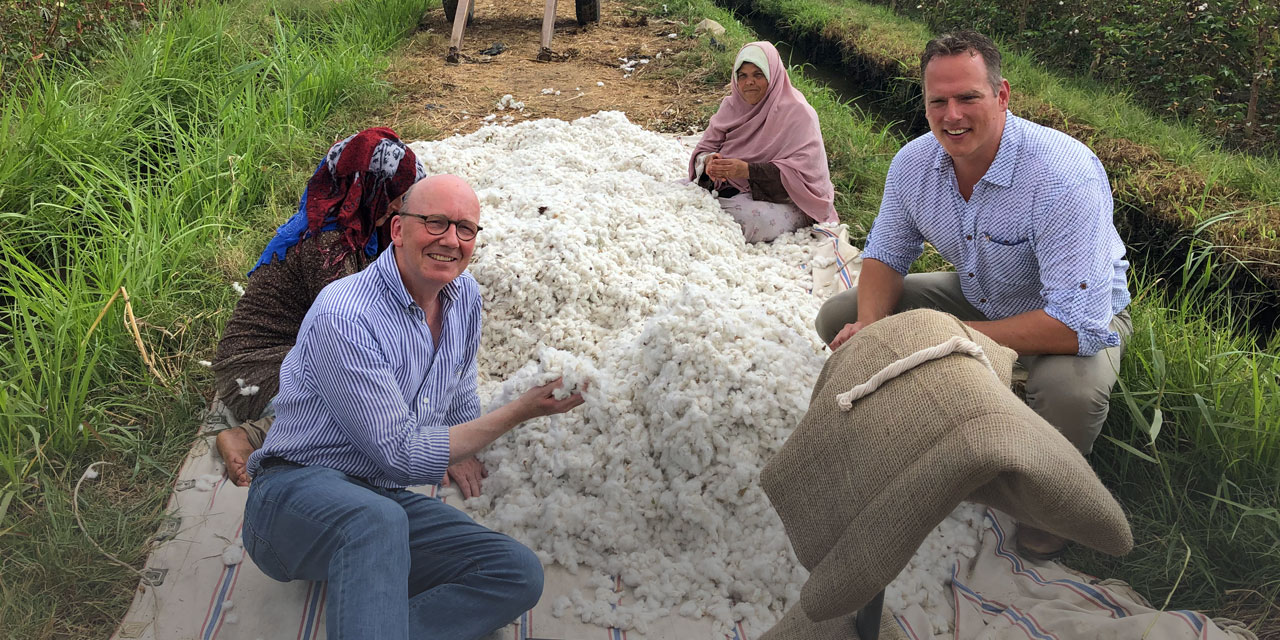
ORGANIC
Biological farming since 2013
In addition to using natural “compost” fertilisers, the organic farmers also help to protect local bird species which protect the cotton plant from being eaten by insects. In order to make full use of the naturally farmed area, wheat and various herbs and spices such as coriander and cumin are planted between the rows of cotton.
The result: Nature recovers, the soil regenerates much faster, and worms (the desirable sort) can again be found in greater numbers in the fields.
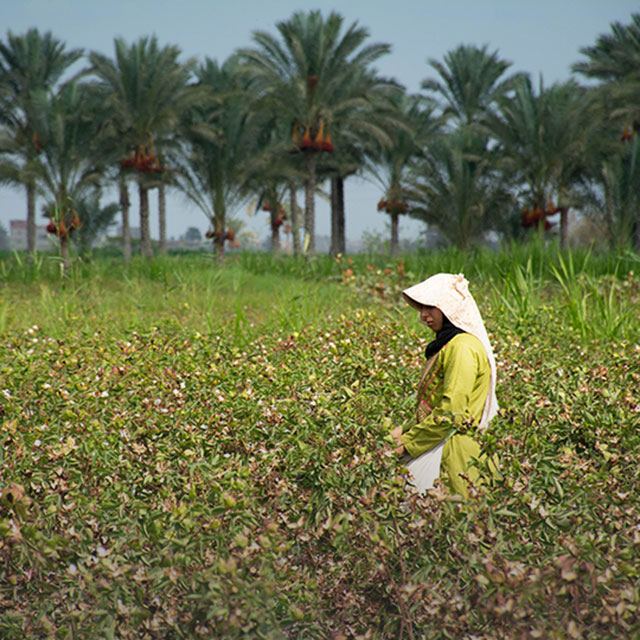

India
Fair-trade cotton production
with organic farming
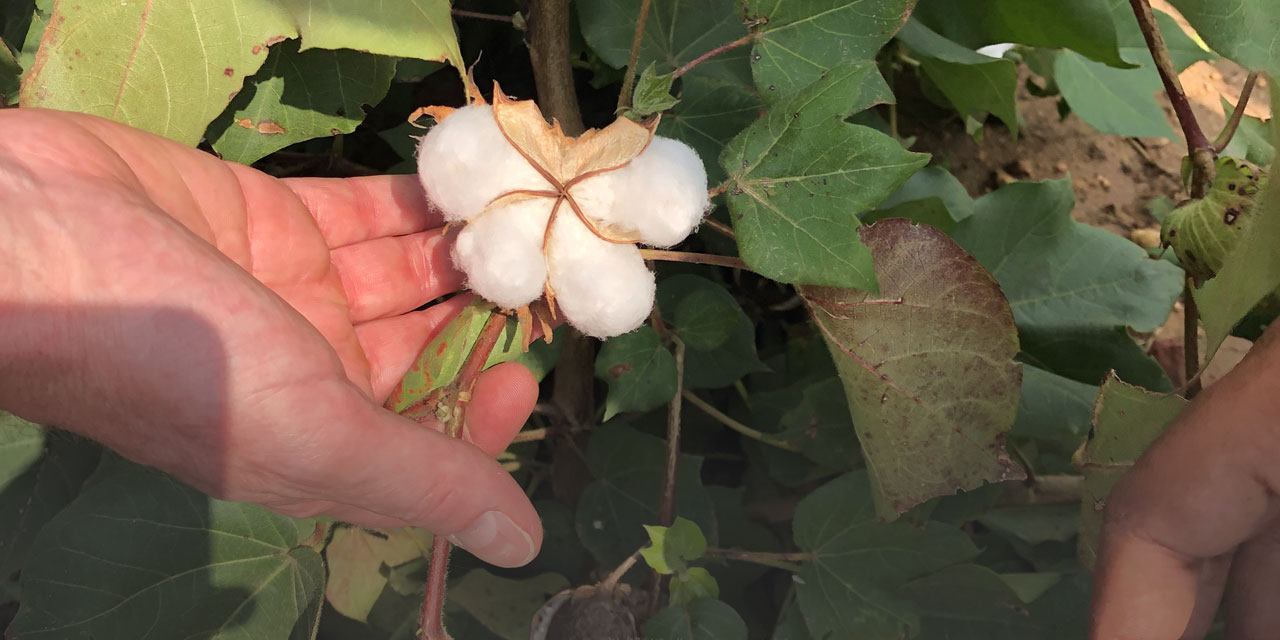
“Thanks to organic farming,
the soil regenerates much faster.”
Organic cotton
“Thanks to organic farming, the soil regenerates much faster.”
The Indian cotton farmers have chosen to take an organic approach to farming. We support them in this decision by, to the greatest degree possible, purchasing only organic cotton from our suppliers. Currently, only around 1% of global cotton production can be classified as organic. As a consumer you can help boost this figure by actively choosing organic cotton.
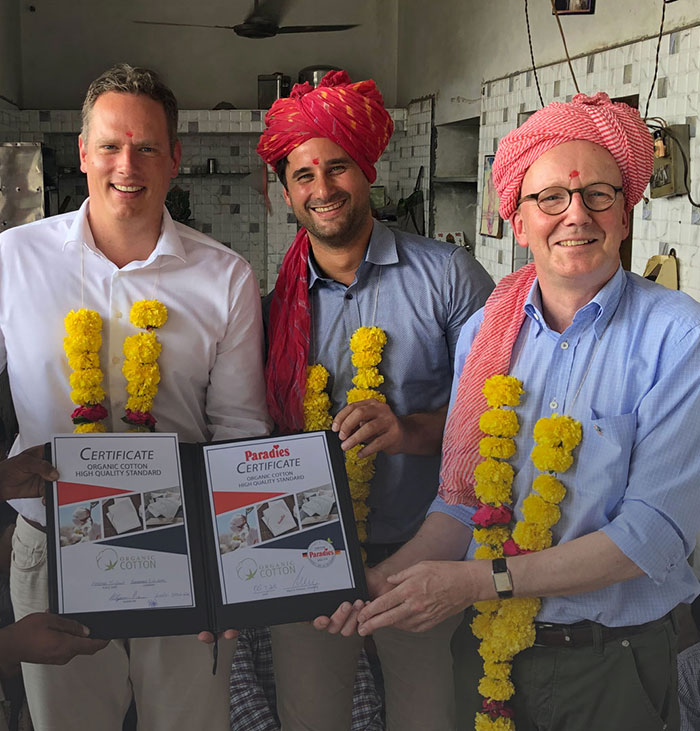
FAIR-TRADE COTTON PRODUCTION
WITH ORGANIC FARMING
Visiting a large family-run company in India
About the initiativeFAIR-TRADE COTTON PRODUCTION
WITH ORGANIC FARMING
Visiting a large family-run company in India
2,000 fair-trade-certified farms belong to the large family-run company which we visited in India. The entire village came out to meet the Paradies representatives and gave us an exceptionally warm welcome: Our hosts painted a red dot on our foreheads, into which a grain of rice was pressed – presumably a good luck charm. And there was a piece of sugar to suck on. We were given chains made from the interlinked heads of cotton flowers and a turban as gifts! We also brought gifts in the form of head covering: Caps to protect the farmers against the sun. It made for a nice picture – the Europeans with turbans on their heads and the Indian cotton producers with caps from the West.
Getting to know each other, expanding horizons – and appreciating good work
The farmers were willing to tell us about their work, and were also interested in hearing about the use to which their product is put. We were happy to answer all their questions and appreciated the important, valuable work they do with regard to organic cotton.
Organic cotton makes girls smart
The farmers sell the organic cotton for a higher price. This allows the families to invest in, among other things, their girls’ education. A group of school girls told us about their future plans: They want to study to become doctors or teachers. And maybe also start a company. The farmers themselves also benefit from on-going training, in accordance with the wishes of the purchaser of the cotton – a ginnery. We saw training posters which showed us how scientifically the entire farming operation is organised.
The seeds of good health – ginnery and oil press under one roof
We visited an Indian cotton mill which does an exemplary job of combining economic efficiency and sustainability. When cotton fibres are separated from the seeds, the kernel is usually left over as residual waste. Here, however, the kernels are used as raw material from which cottonseed oil is extracted. The oil is used in the food industry, while the extracted residue – the oil cake – is sold as concentrated feed for animals.
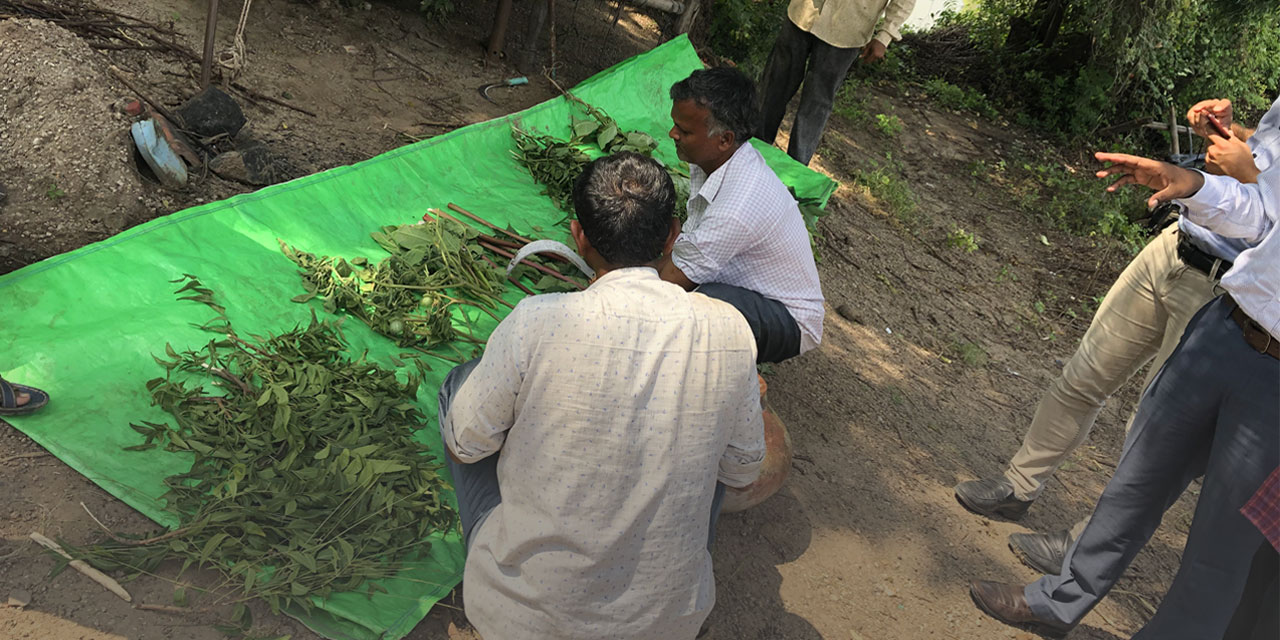
ORGANIC FERTILISER
Sustainable fertiliser –
natural protection
One of the farmers was very proud to show us how he produces a natural fertiliser which also helps to protect against pests. The mix comprises several plants, sugar, urine and animal manure. Every farmer uses their own particular mix. Natural fertiliser helps the cotton plant to grow healthily without the use of pesticides and other chemicals. The farmers help each other: If a pest is discovered somewhere on the land, the farmers quickly inform each other and take collective action to combat the problem.
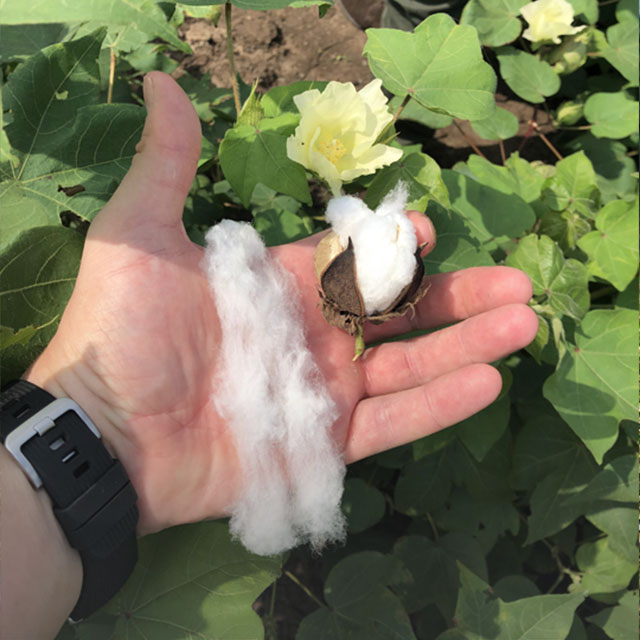
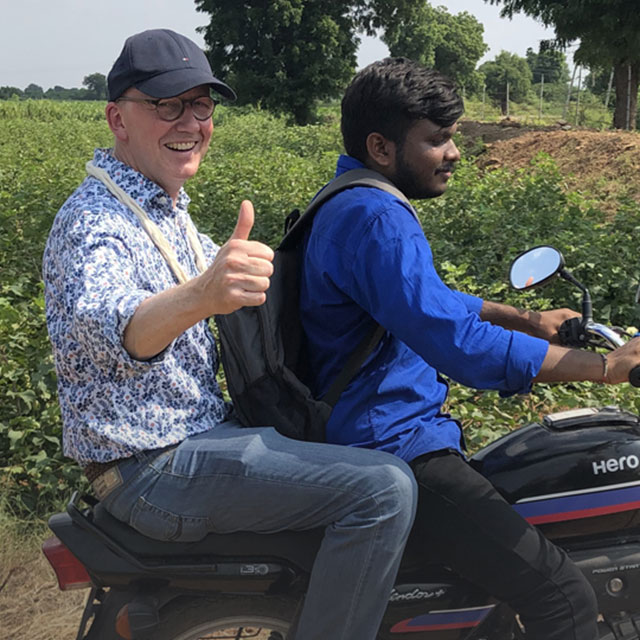
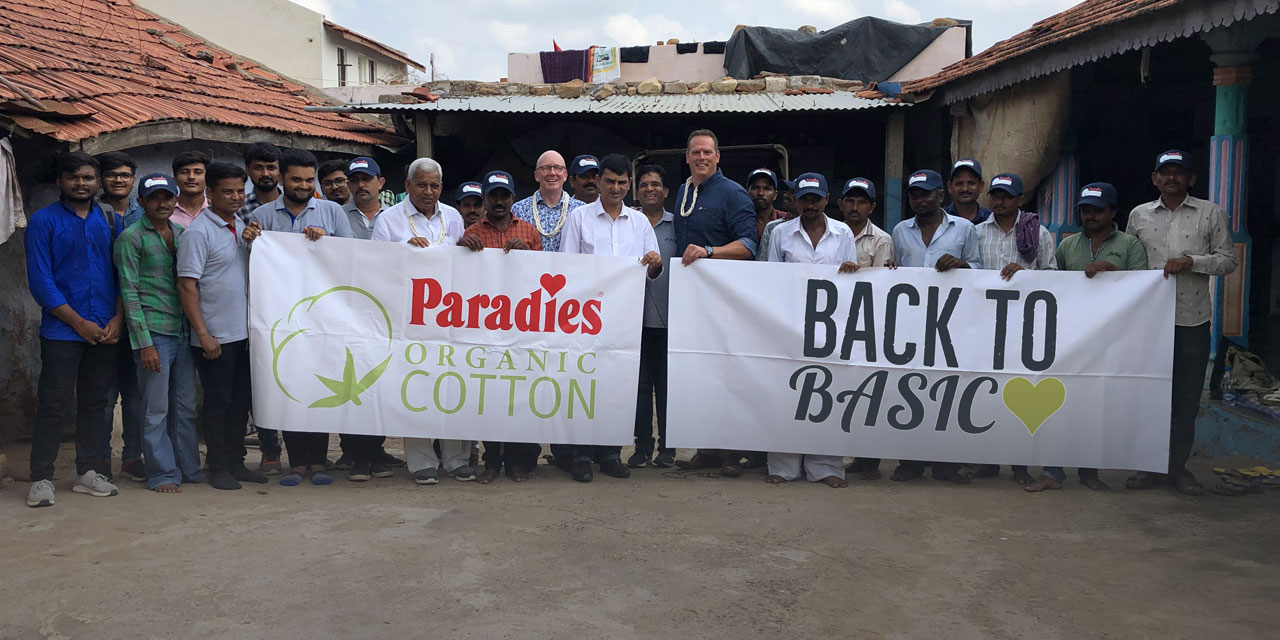
GOTS CERTIFICATION
Global Organic Textile Standard
The company has been GOTS-certified since 2003. The “Global Organic Textile Standard” is an important global certification for the processing of textiles from organically produced natural fibres. GOTS defines environmental requirements along the entire textile production chain as well as social criteria.
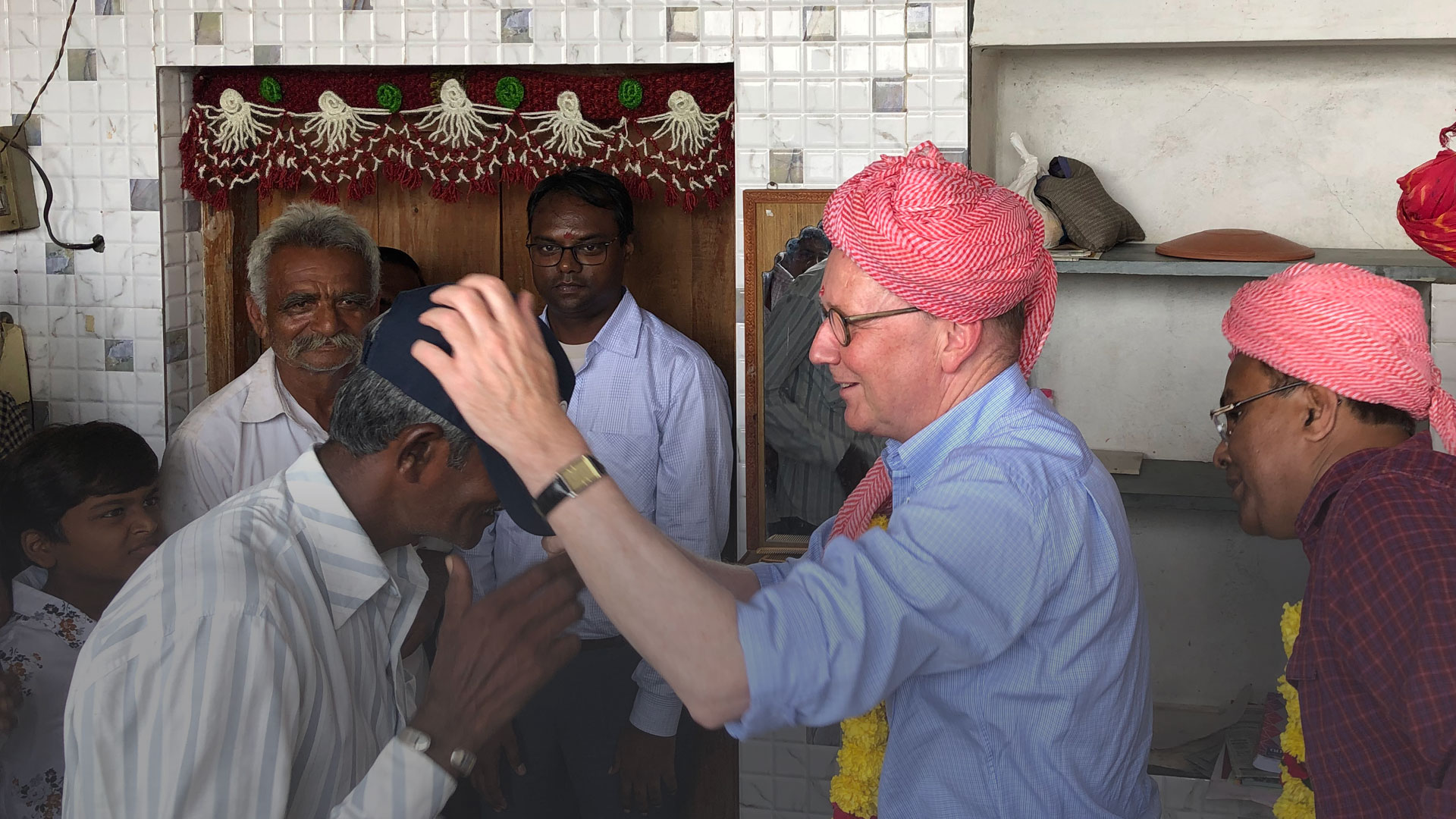
“The mutual respect and hospitality was demonstrated
by the exchange of turbans and protective caps.”

Pakistan
Towards a “green” weaving mill
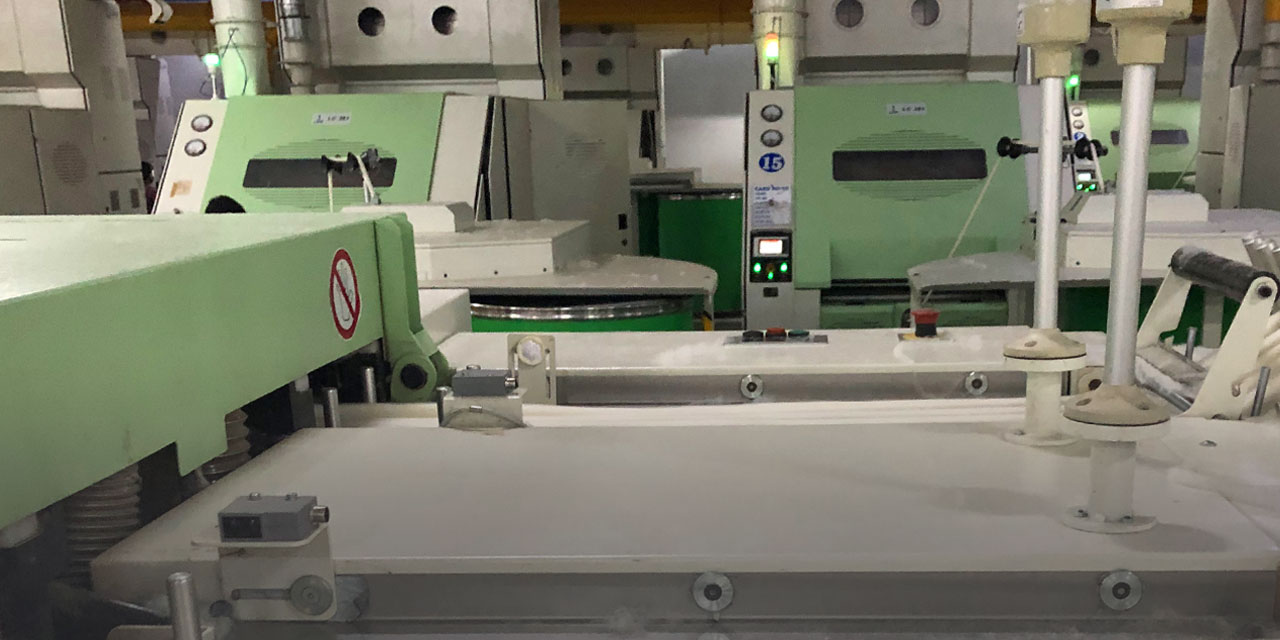
“We are now ready to be certified with,
for example, the European Eco Flower eco-label.”
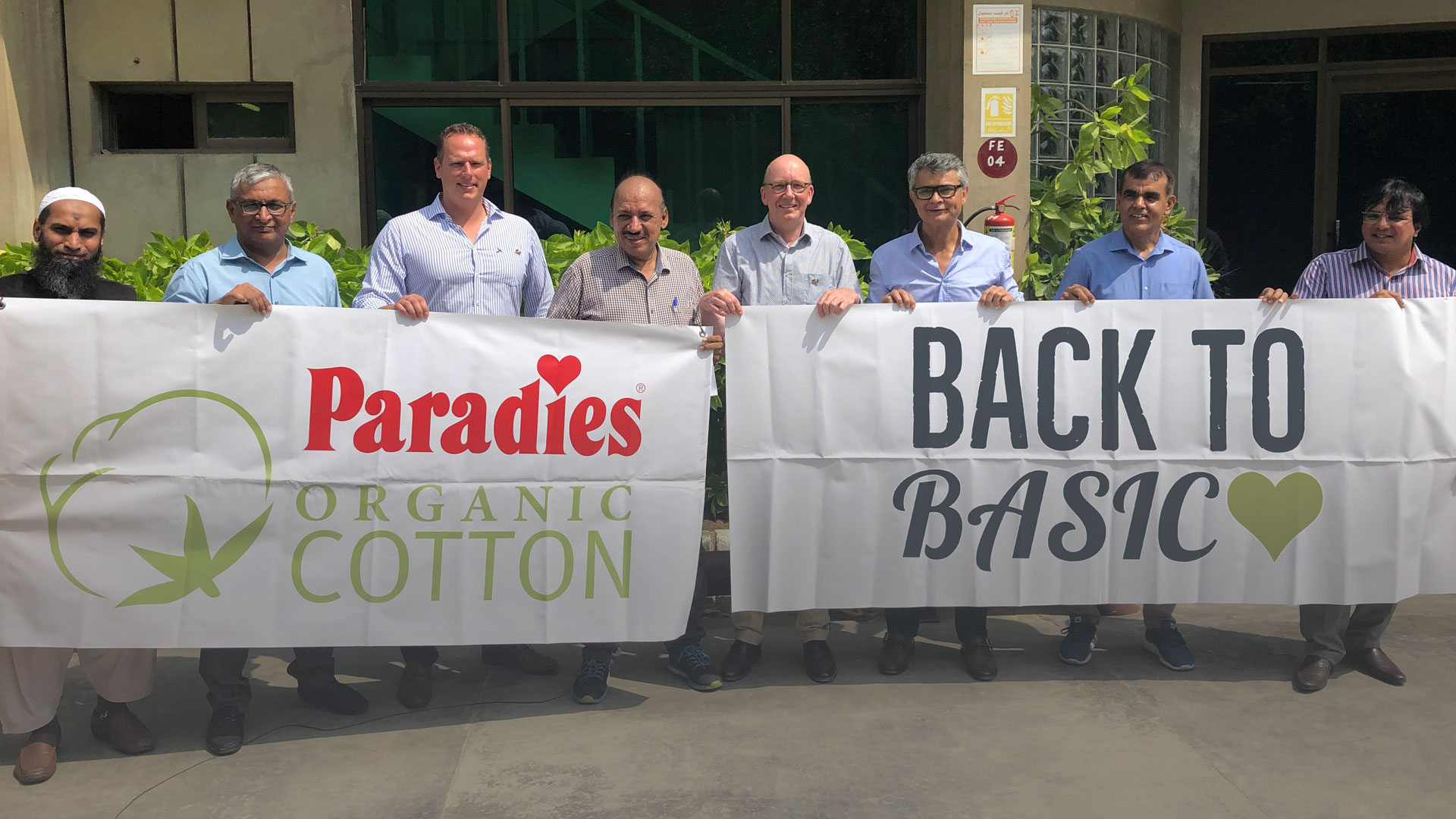
TOWARDS A “GREEN” WEAVING MILL
Visiting a weaving mill in Pakistan
The textile industry is Pakistan’s most important economic sector, accounting for more than half of the country’s exports. We visited one of the country’s many hundreds of weaving mills – and it was a very special one, as the management are committed to making the company increasingly “green”.
The harvested cotton is turned into fabric on the more than 100 weaving machines. When the actual weaving process is complete, additional steps are undertaken, including processing, singeing, washing, dying and pressing. The products are also given the desired finish, for example using emery or aloe vera for extra softness.
The company wants to reduce its carbon footprint and produce in an increasingly sustainable manner. One important step involves a new facility for treating waste water. In Europe this may be something we take for granted, but in India and Pakistan it is still highly unusual. The technology precleans and filters up to 1.5 million litres of water every day, which is extremely important for the protection of both humans and the environment in this area in which water is relatively scarce.
The management is proud to report that, “We are now ready to be certified with, for example, the European Eco Flower eco-label.” The EU introduced this label in 1992 as a distinction for companies that show serious commitment to the environment. Companies which are awarded the label are officially recognised as among the most environmentally friendly in their region.
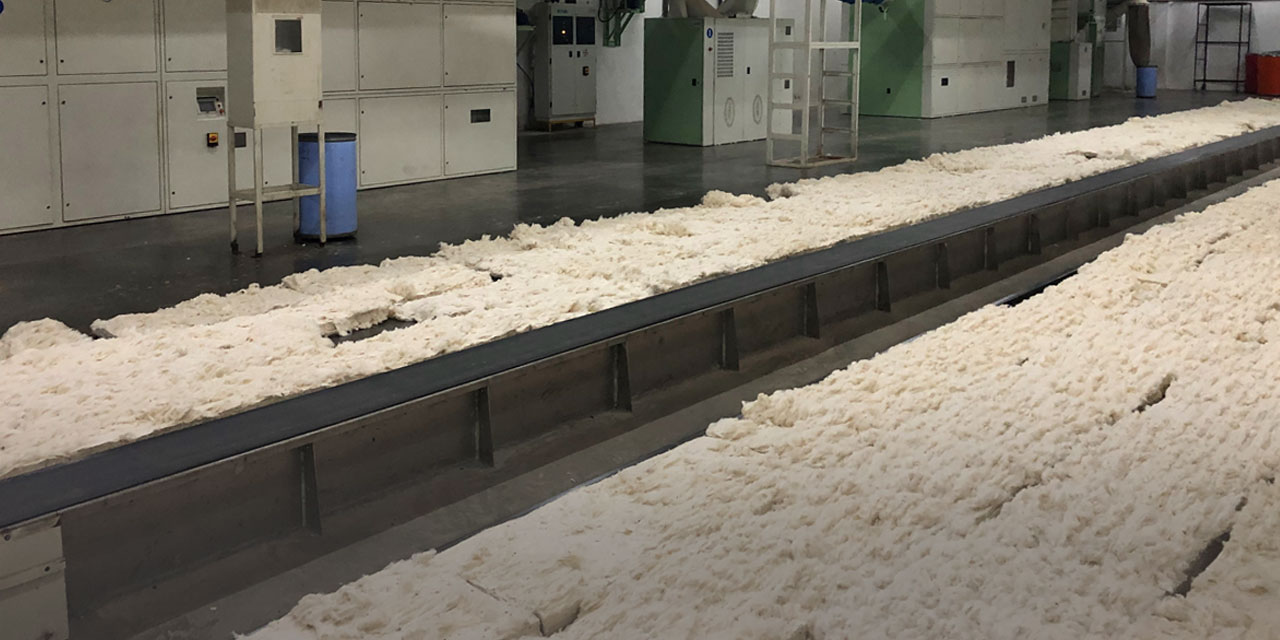
GINNER & WEAVERS
From the cleaning of cotton
to yarn production
Ginneries use the “double roller” procedure. Two rollers wrapped in leather and rotating in opposite directions move against one another and in this way separate the cotton from the seeds. The cleaned cotton is then further processed into large reels of yarn. To achieve this, the cotton fibres are woven together, creating the cotton yarn which is required for weaving. The ginnery has been GOTS-certified by the Control Union since 2015.
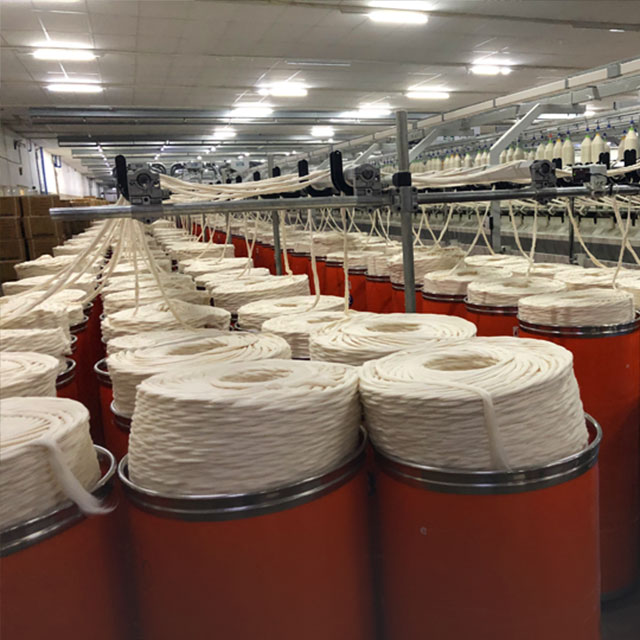
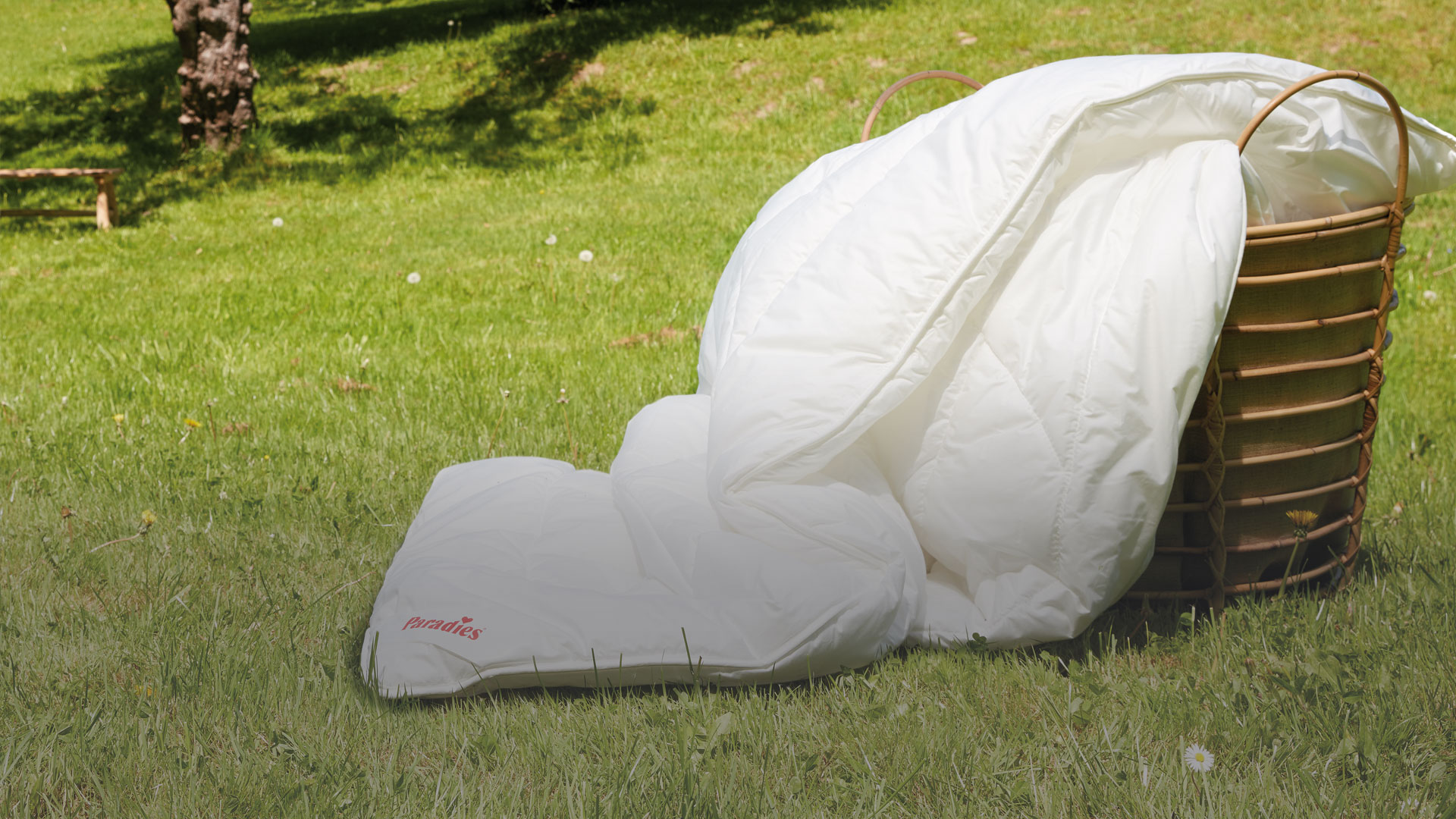
WHAT THE
ORGANIC COTTON IS USED FOR
Our Paradies products with Paradies Greentex® organic cotton
Our aimWHAT THE
ORGANIC COTTON IS USED FOR
Our Paradies products with Paradies Greentex® organic cotton
To date, we have transitioned to Paradies Greentex® organic cotton from certified organic farming for around 90% of the fabric used in our range of bedclothes.
We always aim to use organic material or resource-saving alternatives in our products.
At Paradies we do not merely equate “sustainability” with “product”: The concept is deeply embedded in the way the entire company functions. We do a lot of things right, and though we are not yet perfect.
We keep working towards that goal. In good conscience.
